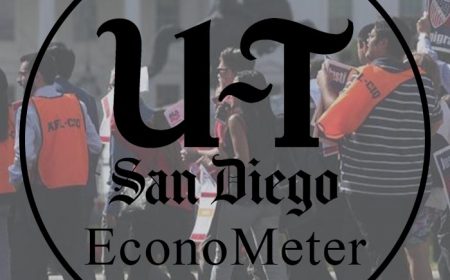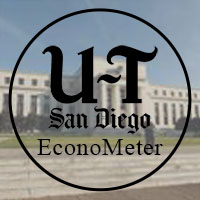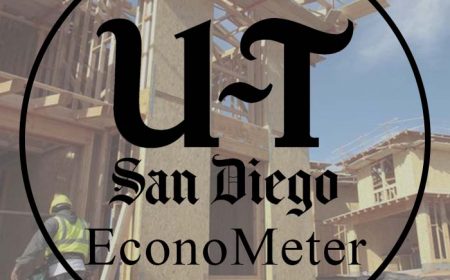Lodging Forecast 2009
“2009 is expected to be a buyer’s market now that the softening economy has created far more price sensitive travelers.
“
Despite a fairly strong first half of the year which included economic growth of 3.5% in the second quarter, the third quarter of 2008 “was less robust,” according to Business Week. Weak consumer confidence, a rising unemployment rate and inflationary pressures punctuated by a major rise in the price of fuel cut into demand for U.S. hotel rooms in the third quarter of 2008. Income growth from wages has slowed as businesses feel the pressure from the weak economy.
According to PKF Hospitality Research, hotel room supply in the U.S. rose 2.5% in 2008 and will climb 2.7% in 2009. While economic uncertainty, slowing travel demand, shorter length of stays and a shorter booking window make the job of a hotelier more difficult, this is not doom and gloom.
Tightening credit conditions are expected to exacerbate the lending ability of small business entrepreneurs. Home equity loans, or anything housing-related for that matter, will continue to be troubled as the housing recession continues into 2009.
The high price of gasoline will be of concern to energy-conscious businesses in 2009 despite the recent price reductions. Proximity to attractions and demand generators will be of increasing importance for lodging sites. 2009 is expected to be a buyer’s market now that the softening economy has created far more price sensitive travelers.
The cost of airfare will be critical to travel in 2009. With increased gas prices and capacity cutbacks since 9/11, airlines are treading in murky water. Dr. Suzanne Cook, SVP of Research for the Travel Industry, notes that airlines are experiencing record load factors of nearly 90 percent and many aircraft suppliers such as Boeing and Airbus will be busy filling orders for foreign markets. A decrease in the supply of flights will further raise ticket prices.
The current downturn will not change the wants and needs of the Baby Boomers or Gen-Xers, who have increased access to distribution channels such as Expedia and Travelocity and merely want to be vigilant in their pursuit of the best deal.
The weakened economy will not be able to stop the ever-expanding globalization of corporations which also boosts demand for hotels. Moreover, San Diego’s successful event calendar in 2008 has created positive buzz in the media and the formation of a tourism marketing district has added significant advertising clout.
Consumers
According to the Travel Industry Association (TIA), the travel industry is indeed in the midst of a decline, “but it’s rather shallow and the industry seems well positioned for recovery sometime next year.” Wow, that sounds ambitious considering the hit we have taken this past 90 days. TIA indicates leisure travel will decline about 0.2 percent this year and 1.3 percent in 2009. A rebound of 3 percent is expected in 2010. Additionally, TIA expects the long term outlook to be good for business travel. This year business travel volume is expected to decline 3.6 percent and 2.7 percent in 2009. In 2010 it’s expected to rebound 2 percent.
According to the latest travelhorizonsTM survey co-authored by TIA and Ypartnership, seven out of 10 (71 percent) respondents intend to take an overnight trip of 50 miles or more from home during the next six months. Fully half (48 percent) of all respondents stated they were not planning any changes to their future travel plans as result of the recent turmoil in the financial markets. Dr. Peter Yesawich, Chairman of Ypartnership, said there is also good news which is reflected in the company’s new Travel Sentiment Index, which is an aggregate of six different measurements. The measurement currently rests at 78, which is exactly where it was in July.
“Clearly the world changed pretty dramatically with financial market turmoil. This encouragingly did not drop,” said Yesawich.
Consumers are likely to plan and purchase leisure trips differently with the pursuit of a “good value” as the primary reason why. Three quarters (76 percent) “expect to book a packaged vacation to save money” and six out of ten (58 percent) “plan to comparison shop for prices and rates specifically on the Internet.” Seven out of 10 (67 percent) “plan to stay fewer nights” and a comparable percentage expects to “spend less on food, beverages and entertainment” when traveling.
This is true even at the upper end of the market, said Dr. Suzanne Cook of TIA. “Upper income [people] are looking for more deals and trying to find a way to make their resources go as far as well. The whole population is in the mode of potentially trading down.”
Smith Travel Research
Smith Travel Research, (STR) is a bit less bullish. Their recent report says, “the U.S. hotel industry is virtually frozen by the uncertain state of the global economy. As the credit crisis continues to dominate headlines and water-cooler conversations, reality has set in within the hotel industry in the form of an unknown and impossible to predict short term future.” STR forecasts a 2.5 percent increase in supply when 2008 is all said and done, a 2.4-percent rise in 2009 (most of which will occur during the first half of the year) and a 1.2-percent increase in 2010.
According to STR, “the downward trend in demand began early this year, lodging demand growth has been sluggish for almost two years now and we don’t expect a significant rebound until well into 2010.” The most important thing to consider in the entire demand equation is that pricing is not so much affected by occupancy as it is by overall demand growth. Historical data suggest that the U.S. lodging industry can continue to maintain pricing integrity in the face of declining occupancies as long as demand growth remains positive.
STR suggests that hotel owners and operators remember that most lodging demand is inelastic, especially during tough economic times like now. Lower room rates are unlikely to entice people to travel. Travelers on the road right now have to travel, so there’s no benefit in discounting aggressively. Lowering the room rate in this kind of environment in the hopes of getting incremental business is an ultimately flawed strategy, for several reasons. First, and probably most importantly, if you believe that lodging demand in a bad economy is inelastic, then a discounting strategy’s only chance of success is to “steal” business from a competitor. However, in the transparent world of pricing today you gain no competitive advantage by lowering your prices as your competitors know almost immediately about your strategy and can instantly match it. All that is accomplished is lowering the customer spend for everyone. Second, once you embrace this strategy you re-educate your guests about the value of your product offering. It is much easier to lower rates aggressively than it is to grow them at the same rate. It can take years to get back to your original room rate. Yes, there will be hotel operators who discount, but in general, it’s the lower performing properties that lead that charge. Hoteliers would be wise to forgo following the lead of the worst performer, as tends to happen in a downturn, but rather to keep following the lead of the best performer, who is more likely to maintain their pricing integrity for a longer period of time.
The one area that could and is being used to generate additional demand at the property level is a change in business mix. Upper-end properties are already beginning to take group business at a lower rate to replace some of the transient business that has disappeared. However, because groups receive lower rates than transient business regardless of the economic conditions, this shouldn’t dramatically affect average rates.
Transactions and Financing
One certain outcome of the current economic environment will be a tight transaction market for the next few months. It’s currently hard to buy or sell a hotel because it is extremely difficult to determine what the value is. Everyone is talking about the lack of credit, but the big issue is there is a big disconnect in terms of property value as well as what the property performance will be in 2009 and 2010.
Between the new supply, reduced demand due to a softening economy and a credit crunch, finding a loan today can be difficult at best. Most prognosticators believe that this will loosen up in the second half of 2009, but it will take awhile for the “loosening up” to mean that multiple sources of financing will be lining up to do hotel deals. The lenders in our industry traditionally wait too long before shutting the spigot on deals and hesitate before jumping back in until fundamentals have improved for a significant period of time. Ergo, 2010 would be a better bet to look to the capital markets for transactions to truly return.
The worst stretch for lodging performance will likely be the next six months—through the second quarter of next year, which we expect will be an especially rough stretch. Once the housing market and other types of real estate begin to stabilize, the hotel industry can start to think about its recovery as its fundamentals improve.
Recession
While a recession is considered by most to be about two consecutive quarters of negative gross domestic product growth it is really about jobs. Employment data is almost as bad as in 2001. For the next couple of quarters, we’re going to see actual employment continue to weaken according to most economists.
As employment and consumer confidence decline, so will consumer expenditures in our industry. Maintaining market presence through aggressive marketing to increase market share is critical.
Notice the very tough stance corporate travel planners are taking during this year’s rate negotiations. Before we lower rates across the board, consider rebates as different room night production goals are met on a quarterly basis. Offer value and concessions that are meaningful and you will land the business and remain ahead of the game.







